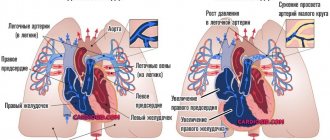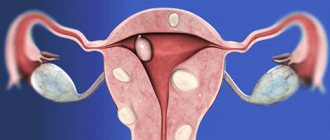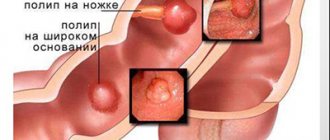When is emergency contraception needed?
Emergency contraception is immediate medication and other methods that help avoid pregnancy after unprotected intimacy. Conceiving a child is possible in a situation where male sperm enters the female vagina. Most often this happens if sexual partners do not use a condom during sex.
A common reason for the threat of pregnancy is male negligence, when a partner is not satisfied with sex with a condom, but he is unable to control ejaculation. After such a male “feat”, many women are very aggressive.
Many women choose hormonal contraceptives as a contraceptive. And this method is indeed quite effective. However, there are situations when a woman forgets to take the medicine on time, which becomes the cause of unwanted pregnancy after unprotected sexual intercourse.
There is also a calendar method of avoiding pregnancy, the essence of which is to determine the time of ovulation and abstain from sexual activity on days when the risk of becoming pregnant is highest. However, this method is not reliable and often leads to unplanned conception.
The calendar method is an ineffective method of contraception.
There are also sadder situations when unprotected sexual intercourse took place by force. In this case, a woman’s reluctance to have a child is quite understandable.
Intimacy without using a condom can result not only in an unplanned pregnancy, but also in other complications. Thus, bacterial diseases (chlamydia, gonorrhea), viral pathologies (HIV, hepatitis B), and fungal infections (thrush) are transmitted sexually.
In rare situations, emergency contraception may be relevant after protected sexual intercourse, during which the condom has slipped or lost its integrity.
Before choosing a condom, pay attention to the manufacturer of the product. Usually companies that have been operating on the market for a long time. trustworthy. Such manufacturers include the Japanese company Crown and the English company Durex.
With proper use of emergency contraception methods, the risk of complications in a woman is minimal. However, the use of such methods should not be regular, otherwise the likelihood of health problems increases.
What types of EC are there? Birth control pills after intercourse
Today, pharmaceutical companies offer a variety of types of planned and emergency contraception. These are all kinds of patches, rings, suppositories, spirals, tablets. You need to know more about the tablet form, since they are in demand and are prescribed to the fair sex.
The tablet form is easy to use and does not require additional preparation before use. It is important to remember that the tablets discussed are not suitable for continuous use and should only be used in an emergency. The recommended frequency is no more than 1 – 2 times per calendar year.
Important: you should not select the product yourself. Consultation with the supervising physician is necessary.
Levonorgestrel
How does it work?
Levonorgestrel (a progestogen) works in three ways that help prevent the fertilization of an egg:
- After using the drug, ovulation is canceled or delayed by the action of the active substance on the ovaries. The egg does not leave its house, so it does not meet the sperm. By the time ovulation occurs, the male cells die;
- Cervical mucus changes its properties and becomes viscous. Throughput is reduced to 0;
- The contraction of the fallopian tubes decreases;
- The structure of the endometrium changes. The walls of the uterus become loose and thin, due to which a fertilized cell cannot implant.
Drug options
| Name | Recommended time to take | Instructions for use | Price, ₱ | Vacation |
| Postinor | Recommended time for administration is 72 hours. | The package contains 2 tablets. Drink the first one, then maintain an interval of 12-14 hours and take the second one. | 340-450 | On prescription |
| Escapelle | Two tablets are taken one at a time with an interval of 12-14 hours. If vomiting occurs within the next 180 minutes, take it again. | 450-650 | On prescription | |
| Exinor-F | Two tablets are taken in the same way as above. The interval between them should be about 12 hours, but no more than 16 hours. It is possible to take two tablets at the same time for a high effect. | from 300 | On prescription | |
| MODEL 911 | It is recommended to take the tablet within 12 hours after the act, but not later than 72 hours. | from 350 | On prescription |
Efficiency
Taking the drug shows that pregnancy can be prevented in 95% of cases if the pills are taken quickly (up to 24 hours). Effectiveness decreases in subsequent hours, which increases the risk of pregnancy.
Indications
Levonorgestrel is used for rapid contraception after intimacy. Indications for use: unreliable methods of contraception, unprotected sexual intercourse, including rape.
Contraindications
Ladies who decide to use the above-described products should carefully study the instructions. Pay attention to contraindications. If at least one of the following points is present, you should avoid taking pills:
- The age of the person taking the drug is not younger than 16 years. The use of EC (emergency contraceptives) from the age of 16 should be supervised by a doctor.
- acute or chronic problems with the liver, kidneys and pancreas. Since removing the drug is a huge burden on the kidneys and liver, women with problems should consult a gynecologist for consultation and choose another more gentle method of contraception, including urgent ones.
- allergy to the main component of the drugs - levonorgestrel, or lactose.
- presence of pregnancy. Before taking the pill, pregnancy should be excluded. The active substance has a detrimental effect on the condition of the embryo and can also lead to ectopic pregnancy.
- not recommended for breastfeeding, Crohn's disease.
Side effects
If the drug is not suitable or an overdose occurs, the following symptoms can be observed:
- allergies, which are expressed by redness, swelling, itching, rash;
- nausea, possible vomiting;
- pain or dizziness in the head, fatigue, lethargy;
- lower pain in the area of the ovaries and uterus;
- swelling and pain of the mammary glands;
- copious or scanty bleeding;
- changing the monthly calendar by delaying up to 7 days.
Mifepristone
How does it work?
Mifepristone in its pure form is used only in medical institutions. The purchase of drugs with the same active ingredient is possible through pharmacies, but only with a prescription.
It aims to block the production of progesterone. The abilities of the myometrium change. Ovulation is slowed down or does not occur at all. In addition, the active substance reduces the possibility of implantation of a fertilized egg.
Drug options
| Name | Recommended time to take | Instructions for use | Price, ₱ | Vacation |
| Mifepristone | Use as a quick contraception after NPA, when 72 hours have not yet passed after ejaculation. The risk of becoming pregnant is quite low if you follow all the instructions and take the drug as quickly as possible. | The dosage is determined solely by the doctor. The medication is taken on an inpatient basis. It is not recommended to eat food the day before (1-2 hours before). The woman is observed for several hours after the start of the procedure. | from 5000 | Through a medical institution |
| Gynepristone | It is recommended to eat and then drink the drug after a couple of hours. One tablet is taken with plain water. After the procedure, it is not recommended to eat food for 2 hours. | 400-600 | On prescription | |
| Mifegin | The dosage is prescribed by the attending physician. The drug must be taken in a hospital. | from 3000 | Through a medical institution | |
| Ginestril | A tablet with a dosage of 10 mg should enter the body within 3 days after intimacy. Do not eat food a couple of hours before and after the procedure. | from 4500 | On prescription | |
| Genale | The procedure is carried out before or after meals 2 hours. It is important to take the pill no later than 3 days after intimacy. | from 300 | On prescription | |
| Mifeprex | from 1100 | On prescription | ||
| Agesta | from 300 | On prescription |
Efficiency
Taking into account that drugs with the active substance - mifepristone - must be taken within the next 72 hours after sexual intercourse with an unreliable method of contraception, it is believed that a high probability of preventing pregnancy occurs within 12-24 hours. The effect is reduced when taken after 25 hours .after legal acts.
Indications
The application options are quite wide:
- medical abortion during pregnancy no more than 9 weeks;
- emergency contraceptive when visiting a doctor. Often used after violent intimacy. The relevance of the method is 72 hours. Use in subsequent hours is inappropriate;
- use during childbirth to stimulate labor. Reception is carried out in several stages over 3 days. An important feature is that the pregnancy should be considered full-term.
The prescription of a particular drug must be carried out by a doctor, who will determine the required dosage taking into account the time elapsed after intimacy and the duration of pregnancy.
Contraindications
The list of diseases and conditions when the use of mifepristone-based drugs is inappropriate is quite wide. Namely:
- problems with the adrenal glands;
- kidney and liver diseases;
- large and small fibroids;
- anemia;
- inflammatory processes;
- smoking after 35 years;
- pregnancy more than 9 weeks;
- sensitivity to the main active substance;
- heart problems;
- chronic lung diseases.
Do you have any doubts about taking the product? Contact your doctor for advice!
Side effects
When taking mifipristone in large quantities, as well as ignoring contraindications, you can get the following side effects:
- dizziness;
- headache;
- nausea, often leading to vomiting;
- stomach upset;
- depressed or apathetic state;
- fatigue;
- allergic rashes (urticaria);
- pain in the ovaries and uterus;
- spotting or copious discharge of blood;
- changing the menstrual calendar;
- adrenal insufficiency.
Use of combined contraceptives
The Yuzpe method involves taking oral contraceptives, used on an ongoing basis, as a quick and temporary way to prevent unplanned pregnancy immediately after intimacy. Not all drugs are suitable, but only combined OCs. The effectiveness of taking tablets in this way is determined by the time that has passed since the NPA. When using a high dose of hormones in the first 12-24 hours, the probability of fertilization is 75-95%.
The drugs combine two different active ingredients: levonorgestrel, estrogen, progestogen, ethinyl estradiol, desogestrel. It is important to observe the number of tablets, which corresponds to the increased dosage, as well as the time of re-dose.
How does the method work?
After taking COCs (combined oral contraceptives) in large dosages, the body responds to their effects:
- the endometrium changes;
- the release of the egg is blocked or inhibited.
Drug options
| Name | Price, ₱ | Recommended time to take | Instructions for use | Vacation |
| Rigevidon | from 250 | The relevance of the method is 72 hours from the regulatory legal acts. It is recommended to use a higher dose in the first 12-24 hours. | 4 tab. should be taken within a time period of 0-72 hours. Then the interval is maintained and the same dosage is repeated. | On prescription |
| Microgynon | from 350 | |||
| Miniziston | from 400 | |||
| Femoden | from 800 | |||
| Regulon | from 400 | |||
| Marvelon | from 1400 | |||
| Novinet | from 450 | Similar time indications as those of the above-described means | 5 tab. should be taken within a time period of 0-72 hours. Then the interval is maintained and the same dosage is repeated. | On prescription |
| Mercilon | from 1500 | |||
| Logest | from 800 | |||
Indications
The reception is justified if “fire” contraception is needed for:
- incorrect choice of permanent method of contraception;
- a torn condom;
- unprotected sexual contact;
- rape.
Contraindications
A massive dose of hormones can have a significant impact on your health. It is important to consider contraindications when taking pills. Diseases included in the list may worsen, and the consequences may become irreversible, even death. Do not neglect the instructions; it is better to contact a specialist for advice.
So, for what diseases is it better to forget about combined contraceptives in huge dosages:
- the presence of inflammation of the genital organs;
- bleeding;
- problems with the kidneys, liver, pancreas;
- problems with the mammary gland: the presence of neoplasms, both benign and malignant;
- intolerance to the main or auxiliary components, and then this is an allergic reaction (Quincke's edema);
- various problems with the heart and blood vessels;
- pregnancy;
- epilepsy;
- thrombosis;
- excess weight.
Side effects
Taking COCs incorrectly can lead to side effects. Treatment is prescribed depending on the symptoms and drug withdrawal. What to expect:
- the breasts swell and begin to hurt, as before menstruation or worse;
- there is heavy bleeding;
- the nature of vaginal discharge changes;
- pain in the lower abdomen;
- there is nausea, which can turn into vomiting;
- change in vision sharpness;
- a tired, depressed state sets in;
- the skin becomes oily, numerous rashes, redness, nodularity, and itching are observed;
- sudden weight gain;
- swelling.
Photo: Which birth control pills to choose after intercourse for 72, 24 hours
Alternative to pills for emergency contraception
If for some reason you cannot use the pill method of emergency contraception: the presence of contraindications, breastfeeding, you should immediately consult a specialist. The doctor often suggests an alternative method: installing an intrauterine device (IUD). Girls and women who breastfeed prefer this option. It is gentle and makes it possible to continue feeding the baby. In addition, the effect remains for subsequent times (up to 5 years).
It is important to contact the clinic as soon as possible. This must be done no later than 5 days after the legal act.
How does it work?
The spiral is made of plastic (first part) and copper (can be replaced with silver)/hormones (second part). The device itself is aimed at maintaining a small inflammatory process that prevents the cell from attaching after fertilization. At the same time, copper or a hormone creates conditions for the death of germ cells.
When should you not get an IUD?
Intrauterine devices should not be used:
- girls under 18 years of age;
- women who have not given birth;
- in the presence of inflammatory processes of the genital organs;
- for STIs and sexually transmitted diseases;
- for cancer;
- if there was at least one ectopic pregnancy in the anamnesis;
- with heavy blood loss;
- with spontaneous displacement of the intrauterine device earlier;
- non-standard shape of the uterus;
- with intolerance to a hormone or metal component.
Types of methods
Emergency contraception is divided into the following types:
- taking special tablets no later than three days after sexual intercourse. For emergency contraception, medications based on linevorgestrel and mifepristone are used. According to some medical studies, medicines containing mifepristone are more effective than medicines containing linevorgestrel. The Yuzpe method is also used, in which combined extragen-gestagen drugs are taken. The disadvantages of medications include a large number of contraindications, a high probability of side effects;
- installation of an intrauterine device no later than 120 hours after intimacy. This method is considered the safest and most reliable. This method is especially indicated for women who intend to continue using this contraceptive in the future. The disadvantage of the method is the presence of contraindications. For example, the installation of an intrauterine device is prohibited in case of inflammatory processes in the genitourinary system or cancer. The advantage of this method is the low risk of side effects compared to taking medications.
The choice of emergency contraception method should be made by a specialist. Only a gynecologist will be able to take into account all the features of a woman’s physiology and select a competent plan for preventing pregnancy.
Danger of using EC
Sometimes the harm is greater than the benefit. It is recommended to use such “fire” methods of preventing pregnancy, such as birth control pills after intercourse, no more than 1-2 times a year . What can happen if you neglect the instructions, contraindications and frequency of use:
- the risk of developing pregnancy outside the uterine cavity increases with each dose. Subsequently, the body’s adjustment to proper fertilization and attachment of the egg in the right place is disrupted;
- development of the diagnosis of infertility. Disorders of the menstrual cycle, as well as the absence of menstruation, lead to the fact that women cannot become pregnant. Eggs are not produced or are rejected until the moment of conception;
- the presence of uncontrolled bleeding. Women who have used EC incorrectly or often enough should remember that the risk of heavy and prolonged bleeding increases. In most cases, hemostatic drugs and curettage of the uterine cavity are used;
- uncontrolled doses of hormones can develop diseases associated with thrombus formation, which leads to strokes and thromboembolism;
- increased risk of developing Crohn's disease.
Birth control pills after intercourse - reviews
Correct actions for a woman after using emergency contraception methods
After emergency contraception using medication, any woman needs to visit a gynecologist for a medical examination. This is especially important in a situation where there is a delay in menstruation by more than 5–7 days. Such a sign may indicate that emergency contraception was useless and the woman still became pregnant.
Also, a delay in menstruation can occur with an ectopic pregnancy - a dangerous condition that threatens the health and life of a woman. Pathology requires immediate therapeutic measures.
In an ectopic pregnancy, the fertilized egg is implanted not in the uterus, but outside the organ
With an ectopic pregnancy, the following additional signs may be observed:
- sharp pain in the lower abdomen;
- fainting conditions;
- symptoms of intoxication.
How to avoid the need to regularly take emergency contraceptives?
Unfortunately, today emergency contraceptives are somewhat more popular than medications of this kind should be. As already noted, this category of pharmaceuticals is more preferable than abortifacient methods, but it is still not so safe as to be used every time there is the slightest risk of pregnancy.
What can be advised to women whose sex life forces them to frequently take such pills? The main advice is to form a clear idea about the permissibility of pregnancy and choose an effective contraceptive method from among the safe ones.
Very often, women who are captivated by doubts about the safety of sexual intercourse resort emergency contraception They should be dispelled and attention should be paid to the fact that coital contraception should be resorted to if:
- first sex for a girl - the misconception is that it is impossible to get pregnant during defloration;
- penetration of the penis into the vagina before ejaculation - pre-ejaculate may contain active sperm; although the probability of pregnancy in this case is low, it still exists; a method of contraception such as PPA should not be used by couples who absolutely do not accept pregnancy in the near future;
- any type of sexual relations and sexual games in which pre-ejaculate and sperm are released with the risk of subsequent penetration of these substances into the female genital organs.
If there is an obvious risk of pregnancy, you should not resort to such unreliable and, one might say, archaic methods of preventing the spread of sperm into the female reproductive system as:
- urination immediately after intercourse,
- douching and all kinds of washing of the internal and external areas of the genitals with a wide variety of means (water and soap, soda, lemon juice),
- sharp and vigorous exercises for the purpose of shaking out or leaking sperm from the vagina (jumping, dancing, etc.),
- hot baths.
The likelihood of pregnancy in each specific case depends on a wide variety of factors (starting from the immunological compatibility of the partners and ending with the day of the woman’s menstrual cycle). However, none of them are affected by the above measures, since the speed of sperm movement inside the female genitalia after ejaculation is high enough to be reversible - after 1.5-2 minutes, active sperm are able to reach the uterine cavity.
Reviews from experts about emergency contraceptive pills
A drug for “fire contraception” in cases of unprotected sexual intercourse. Disrupts the menstrual cycle. Often side effects. Can only be used as a last resort. Cannot be used on an ongoing basis. Taking Postinor is still less evil than abortion if the pregnancy is definitely not going to be saved (for example, in case of rape).
neurologist Lisenkova O. A.
https://protabletky.ru/postinor/
Ginepristone (mifepristone) is a generic, artificial steroid antigestagen, blocks the effect of progesterone, an antagonist compared to glucocorticoids (competition at the receptor level), an emergency protection drug. Increases the contractility of the muscular wall of the uterus, increases the susceptibility of the muscular wall of the uterus to prostaglandins, inhibits ovulation, transformation of the uterine mucosa, and prevents the implantation of a fertilized egg. I prescribe gynepristone for medical abortion, as a means of emergency contraception. Contraindicated during gestation. An effective, reliable drug. Among the side effects, I can note abdominal pain, nausea, acyclic bleeding, and disturbance of the central circulation.
gynecologist Olga Nikolaevna
https://puzkarapuz.ru/review/detail/ginepriston_otzyvy_sovety_i_otzyvy_vrachej_ginekologov_o_pre
Which pills are best for preventing unwanted pregnancy within 72 hours?
The 72-hour pregnancy pill is an emergency contraceptive that prevents conception after sexual intercourse in which other methods of protection against pregnancy were not used or were unreliable. Their period of use is limited to 3 days after sex, which is due to the characteristics of fertilization and embryo implantation. But if you follow the instructions for use, this is a good way to protect yourself from pregnancy, if you do not resort to it only as a last resort.
In what cases should you not use 72 hour tablets?
The main indication for using 72-hour birth control pills is to prevent pregnancy. They are not suitable for abortion; contraceptives cannot cause an abortion after implantation of the embryo. Contraceptives with levonorgestrel are contraindicated for:
- pregnancy;
- allergies to any component of the drug;
- severe liver failure;
- some hereditary diseases associated with lactase deficiency;
- malabsorption syndrome.
Mifepristone should not be used in the following conditions:
- early ectopic pregnancy;
- long-term treatment with corticosteroids;
- bleeding from the vagina;
- anemia and blood clotting pathology.
Can be used with caution for bronchial asthma, hypertension and heart failure.
Is this considered an abortion?
Emergency contraception is not considered an abortion and does not harm an existing pregnancy. The pill or IUD stops eggs from leaving the ovaries so they don't meet sperm. The embryo is not created, which means the pregnancy is not terminated. Only the destruction of an existing embryo can be considered an abortion.
The World Health Organization states that the use of drugs that prevent pregnancy in cases where pregnancy has already occurred does not harm the health of the mother and fetus.
Advantages and disadvantages
Of course, taking a disposable contraceptive has positive and negative aspects.
The advantages include the speed and effectiveness of such tablets.
The disadvantages will be a high risk of hormonal instability and an unguaranteed result.
Any doctor will most likely advise you to avoid this method of preventing pregnancy. Condoms and the IUD (a device placed in the vagina and uterus) will be more reliable. However, in case of unforeseen circumstances, these funds are an excellent solution.
Review of emergency contraceptives 72 hours
The pills, which are used to prevent conception after sexual intercourse, can be purchased without a doctor's prescription. They can be used by women of fertile age over 18 years of age. Such hormonal drugs are not recommended for adolescents.
№1 Postinor
A progestogen drug for immediate protection, which includes a single dose of 0.75 mg levonorgestrel. The Postinor blister contains 2 tablets, which are divided into 2 doses . You can take the entire dose at one time if the woman is in the middle of her menstrual cycle and there is no high probability of ovulation within a few hours after sex. The cost of a pack is 310-342 rubles.
No. 2 Escapelle
The drug Escapel contains the active ingredient levonogrestrel, but in an increased dose of 1.5 mg. For contraception, one tablet is taken, which cannot be divided or crushed. Repeated administration of the medicine is required only in case of vomiting in the next 2-3 hours. Price 382-406 rub.
Attention! A large dosage of the hormone increases the likelihood of adverse reactions. Levonorgestrel in such quantities may exhibit weak androgenic properties.
No. 3 Genale
Zhenale birth control pills are based on mifepristone. A single dose is 10 mg. It is enough to increase myometrial contractility and prevent implantation of the fertilized egg. But as the dose increases, the risk of adverse reactions increases. To terminate pregnancy, analogues of Zhenale are used, but with a concentration of the active substance 60 times higher. The average price of emergency contraception is 450 rubles.
No. 4 Eskinor-F
The package contains 2 tablets based on levonogrestrel. It is recommended to use them no more than once during the cycle. But emergency contraception does not replace the subsequent use of condoms.
Eskinor-F, like other drugs in its group, can cause intermenstrual bleeding and cycle disruption. Therefore, it is better to resort to this method of protection against pregnancy as a last resort. The cost of tablets is on average 350 rubles.
No. 5 Gynepriston
Tablets with mifepristone in a dosage of 0.01 g. Prevent implantation of the embryo into the uterine wall.
It is recommended to take them 2 hours before meals or 2 hours before meals to increase the contraceptive effect. The package can contain 1 or 2 tablets. Women who have had more than 24 hours after unprotected sex, or who are in the middle of their menstrual cycle, should take a double dose.
No. 6 Modell 911
Levonorgestrel tablet at a dose of 1.5 mg, the package contains 1 piece. Research shows that this drug is highly effective and helps prevent pregnancy in 84% of cases. If you use 2 tablets of 0.75 mg with an interval of 12 hours, the chances of not getting pregnant are reduced to 79%. The cost of packaging is about 400 rubles.
Which contraceptives are the safest?
According to the results of an analysis of European scientists, the safest contraceptives for women are combined contraceptives.
- Implant under the skin. A 4 cm rod is placed on the surface of the shoulder from the inside. Gestagen delays ovulation, passing into the blood in small portions. Duration of validity: 3 years. A woman may feel that she is not the master of her body, which can result in depression and melancholy. You can refuse the implant at any time.
- Vaginal ring. Hormones do not interact with the digestive tract and liver, so they do not cause nausea. Due to the low content of hormones in the composition, it does not contribute to excess weight gain. If secured incorrectly, it may fall out. Then you need to rinse it with water and put it back in place.
- Methods of hormonal contraception. Methods of hormonal contraception are contraindicated in case of coronary artery disease, diseases of the cardiovascular system, advanced diabetes mellitus and other diseases.
- Condoms. Safety depends on the correct choice of product size, contents and use. They have no side effects (if you have an allergic reaction to latex, you can replace them with polyurethane products). Protects against sexually transmitted infections.
- Hormonal contraceptives. Their structure contains a synthetic imitation of female sex hormones. They inhibit the ovulation process, prevent the egg from catching on the lining of the uterus, condense cervical mucus in the area of the cervix, and change the compression of the fallopian tubes and uterus. The safety of this type of contraceptive drug is expressed in increased contraceptive activity, efficiency reaches 100% with proper use, protects against gynecological diseases (endometriosis, vaginitis, uterine fibroids, bacterial vaginosis and others), smoothes out female hormonal levels, reduces the amount of bleeding, spiral inside the uterus and mini-pills do not have a negative effect during lactation. Safety is determined by the patient’s age, type of hormonal contraceptive, correct use of pills, weight and height, intensity of sexual life.
- Spermicides. They contain a chemical component that destroys sperm and its base, thanks to which it disperses into the vagina. Safety lies in the fact that they are easy to use, have a small number of contraindications, contain a moisturizing effect, do not cause discomfort during sexual intercourse, protect against HIV infections, are allowed to be used during the postpartum period, and can be combined with other contraceptives, making them more reliable. Safety depends on correct use (one sexual intercourse - one dose of the drug); a couple of hours before placing the spermicide, you should not wash yourself with a soap solution, due to the negative effect on the effectiveness of the tablets. Frequent use can lead to disruption of microflora; it is recommended to dilute it with other methods of contraception.
Contraindications
- Kidney and liver diseases.
- Puberty.
- Poor venous circulation, venous disease.
- Thromboembolism
- Violation of the menstrual cycle.
- Anemia.
- Discharge of blood from the uterine area.
- Poor blood clotting.
- Pregnancy.
- Breastfeeding period.
- Chronic diseases.
- Age after 35 years.
- Individual intolerance to lactose and elements of the drug.
- Crohn's disease.
- Taking glucocorticoid drugs.
- Diseases of the uterus and ovarian tumors.
- Adrenal gland dysfunction.
- If you have had an ectopic pregnancy.
Popular means
Modern drugs created to prevent unwanted pregnancy after unprotected copulation are popular. Some of the most famous remedies:
- Postinor;
- Agesta;
- Escapelle;
- Gynepristone;
- Mifepristone.
It is a mistake to believe that drugs will be an ideal opportunity to have unprotected sex. These are hormonal products for one-time use. They affect the woman's body. Gynecologists say that the maximum allowable intake is two capsules per year. Taking pills by a partner will not affect men's health in any way, but it can cause a critical blow to a woman. To be more precise, not to the entire body, but to the organs responsible for procreation. Medicines are not kept in home cabinets, as they are available at any pharmacy.
Hormonal anti-pregnancy drugs block the process of ovulation and egg implantation. The female body is subject to severe hormonal disruption, so it is better to forget about planning a pregnancy for the next six months. Information is important for both partners if they dream of becoming parents of a healthy baby in the future.
Doctors' recommendations and reviews
Gynecologists do not recommend using the morning after pill very often. These are medications that have their own side effects, including menstrual irregularities. It is wise to decide on a method of contraception before starting sexual intercourse so that you do not have to resort to emergency measures. You should also remember that birth control pills taken once after sexual intercourse do not protect against infection. Therefore, during casual sexual intercourse, STI prevention is necessary.
I have used Escapelle tablets several times. Everything went well, there was no flight. I didn't notice any side effects either. But I read what can happen with these pills, and I try not to use them anymore.
Several years ago I often resorted to such pills until my cycle went wrong. Then I had to recover for a long time and take hormones. Therefore, you need to think carefully before hoping for such a pill after sex.
The information on our website is provided by qualified doctors and is for informational purposes only. Don't self-medicate! Contact your doctor!
The most popular are Postinor. But I recommend consulting a doctor; my friend started bleeding heavily from them. Although I have many positive examples, it’s better to be safe.
source
Doctors' recommendations
Emergency contraception should be used as rarely as possible. They can cause a large number of negative reactions, the most severe of which is infertility. Express contraceptives help solve the problem of the likelihood of pregnancy, but can lead to serious consequences.
You need to select a contraceptive based on age. Young women should not have the IUD installed to avoid injuring the cervix. Only after childbirth are all methods of protection against accidental conception available to her.
Emergency contraception methods should be used as a last resort and are not suitable for permanent use. WHO recommends using them as rarely as possible, ideally never. But it is allowed no more than once a year.
source











